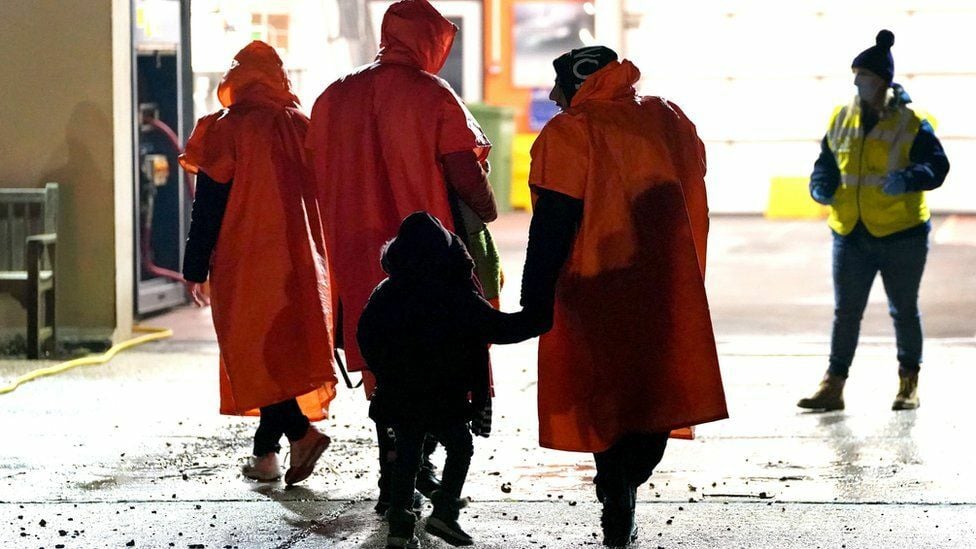UK urged to cut hotel reliance for housing asylum seekers amid room-sharing row

Immigration Minister Robert Jenrick has called for the UK to “reduce its reliance on hotels” for housing asylum seekers, stating that his duty is to the British public and taxpayers. The comments come after a disagreement with asylum seekers over their temporary accommodation in a central London hotel. Last week, around 40 asylum seekers declined to enter a Pimlico hotel when asked to sleep four people per room. Westminster Council’s Adam Huq expressed concern in a letter to the home secretary, stating that individuals who have experienced significant trauma were being asked to share “an inappropriately sized room with multiple strangers.”
In an interview on the BBC’s Sunday with Laura Kuenssberg programme, Jenrick argued that using hotels for asylum seekers takes away valuable assets for the local business community and leads to the cancellation of personal events. He also emphasised the importance of getting good value for money for taxpayers. However, Jenrick denied that it was government policy for asylum seekers and migrants to be housed in shared rooms and suggested that some people were making illegitimate asylum claims.
Labour responded by stating that the asylum system is broken and costly to taxpayers, and only their party has a proper plan to stop dangerous boat crossings. Prime Minister Rishi Sunak has made reducing illegal immigration a key priority, with the Illegal Migration Bill currently going through Parliament. The bill has attracted criticism, including from the Archbishop of Canterbury, who said it risked “great damage” to the UK’s reputation.
The Home Office estimates the plans in the bill could cost between £3bn and £6bn through spending on detention facilities, accommodation, and removals. In 2021, over 45,000 people arrived in the UK via small boats across the English Channel, the highest number since records began in 2018. So far this year, 7,610 people have made the crossing, a decrease of over 2,000 compared to the same period last year. The number of people claiming asylum has also risen in 2022, reaching a near 20-year high of 74,751.
The UK government has a legal obligation to provide asylum seekers with a basic level of accommodation, as they are not allowed to work while their claims are being processed. Typically, asylum seekers would only be housed in hotels or hostels for a few weeks before being moved to long-term self-catered homes. However, the increase in asylum claims and the backlog of unprocessed claims have led to a growth in the use of hotels for temporary accommodation. Government sources have revealed that 395 hotels are being used to house more than 51,000 asylum seekers, costing almost £7m a day.
Ministers are exploring alternative ways to accommodate the rising numbers of people coming to the UK, including housing people in barges or facilities on air bases. Jenrick reiterated the government’s robust approach to reducing costs for taxpayers by asking migrants to share rooms, but did not acknowledge the high backlog for asylum claims, which has led to longer case resolution times. The accommodation issues at hotels across the country would be less acute if fewer people were stuck in the system. The Conservative government’s rhetoric on reducing immigration clashes with the reality of increasing numbers.
Latest Thailand News
Follow The Thaiger on Google News:


























